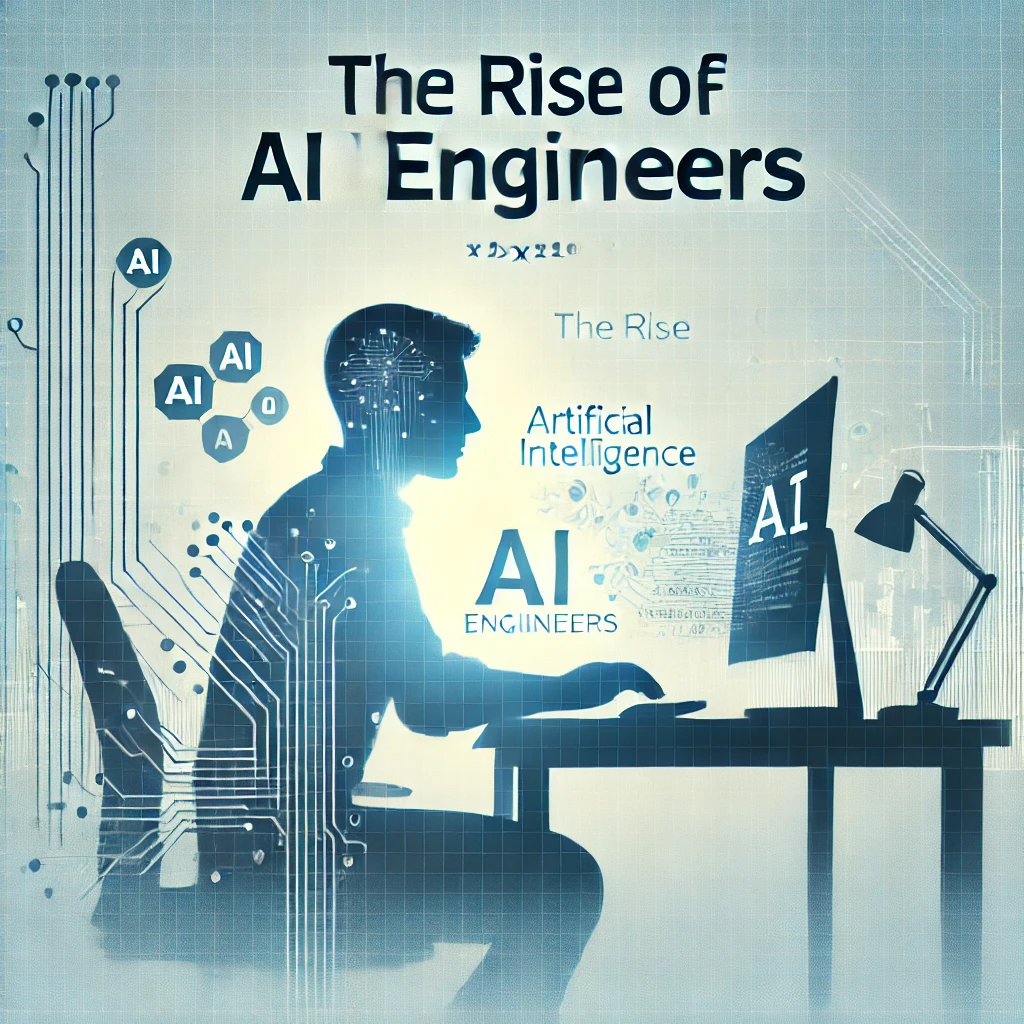The Rise of AI Engineers in Software Development
 Harsh Bopaliya
Harsh Bopaliya
As AI transforms industries, the role of the AI Engineer has emerged to bridge data science, machine learning, and software engineering. With foundational models, AI Engineers are crucial in creating intelligent, scalable applications. Unlike data scientists or traditional software developers, AI Engineers focus on applying and integrating models into applications, ensuring optimal performance and seamless integration. This marks a shift towards a new era of AI-driven software development.
Traditional AI Product Development: The Challenges We Faced
Think back to the typical AI product development process. There was a time when we needed a team of data scientists, machine learning (ML) engineers, and software developers to build AI-powered applications. Here’s how it usually worked:
Data Scientists would build machine learning models.
ML Engineers would optimize and deploy those models.
Software Engineers would integrate these models into applications.
It sounds great in theory, right? But in reality, this process often led to roadblocks. Models were sometimes difficult to integrate, and even when they were, software performance could suffer due to communication gaps between teams, inefficient algorithms, or hardware limitations. On top of that, data limitations and skill shortages made it challenging to deliver AI solutions that truly hit the mark.
Foundational Models: The Game Changers We Needed
Enter foundational models. These large-scale, pre-trained models—like Large Language Models (LLMs)—have transformed how we approach AI development. Unlike traditional models, which required a lot of time and resources to train and deploy, foundational models come pre-equipped with vast capabilities and can be fine-tuned for specific tasks. This means less time spent on building from scratch and more time focusing on how to make these models work for us.
With foundational models, companies like Google have started to tap into new business opportunities, leveraging their data, talent, and hardware to build highly accurate, general-purpose models. The coolest part? We can now use these models through APIs, so we don’t necessarily need a data scientist or ML engineer on hand to build a chatbot, do sentiment analysis, or summarize text. This shift has given rise to the concept of Model-as-a-Service (MaaS), where foundational models are offered as services, allowing us to rent cutting-edge AI capabilities without needing an in-house team of AI experts.
So, What is an AI Engineer?
With foundational models making AI more accessible, the role of the AI Engineer has emerged—a hybrid between a software developer and an AI specialist. AI Engineers focus on:
Fine-tuning foundational models for specific tasks.
Understanding foundational models like LLMs to get the best out of them.
Using prompting and various tools to improve model outputs.
Managing LLMOps (operations around large language models) to ensure smooth deployment.
Staying on top of AI technologies to keep our applications on the cutting edge.
AI Engineers aren’t exactly like data scientists because their focus is on applying and integrating models into applications rather than building them from scratch. They work at the inference level, which means they’re responsible for making sure the models are well-integrated into software and that the whole system performs optimally.
The Shift to AI Engineers: What Does This Mean for Us?
With foundational models on the rise, the demand for AI Engineers is growing. This shift means that traditional data science and ML roles may become less critical for some tasks. We’re seeing:
Software developers adapting their skills to become AI Engineers.
AI Engineers taking on mainstream roles in AI application development, managing everything from fine-tuning models to integrating them into robust software systems.
And as foundational models continue to evolve, we may not need to learn machine learning or deep learning in-depth to become AI Engineers. These models handle general problems—like chatbots, demand forecasting, and recommendation systems—allowing us to focus on delivering solutions that leverage these models.
Real-World Applications: How We’re Using AI for Specific and General Problems
Consider a company like Swiggy. To solve specific challenges, such as optimizing food delivery time, they might need custom-built models, like a specialized recommendation system called FoodNet. But for general tasks—say, a chatbot for customer service or demand forecasting—Swiggy could simply tap into a foundational model, fine-tuning it as needed. This approach is not only faster but also more scalable.
Foundational Models as a Business Opportunity
Services like OpenAI’s API provide access to powerful foundational models, eliminating the need for extensive in-house AI teams. However, challenges such as high API costs and inconsistent outputs can arise. Platforms like Hugging Face offer open-source alternatives, providing more control and flexibility in utilizing these models.
For AI Engineers skilled in using tools like LangChain and services like Amazon Bedrock, the possibilities are vast. These tools enable the nesting of API calls and the development of comprehensive AI applications, ensuring high performance and efficiency.
The Future of AI Engineers: Where Do We Go From Here?
As foundational models become more powerful and accessible, the demand for AI Engineers will increase. These professionals will blend the skills of software developers, data scientists, and ML engineers to create AI-driven applications that address both general and specific challenges. This evolution signifies a major shift from specialized data science roles to a more integrated, application-centric approach in AI solution development.
AI Engineers are set to become central to the development of intelligent and scalable applications. As we move forward, it's evident that AI engineering is not merely a trend but a vital component of technology's future. Whether you're already in tech or considering a career shift, becoming an AI Engineer could be your way to remain at the cutting edge of innovation.
The future is bright, and we’re all part of this exciting journey as AI continues to reshape our world.
Subscribe to my newsletter
Read articles from Harsh Bopaliya directly inside your inbox. Subscribe to the newsletter, and don't miss out.
Written by
